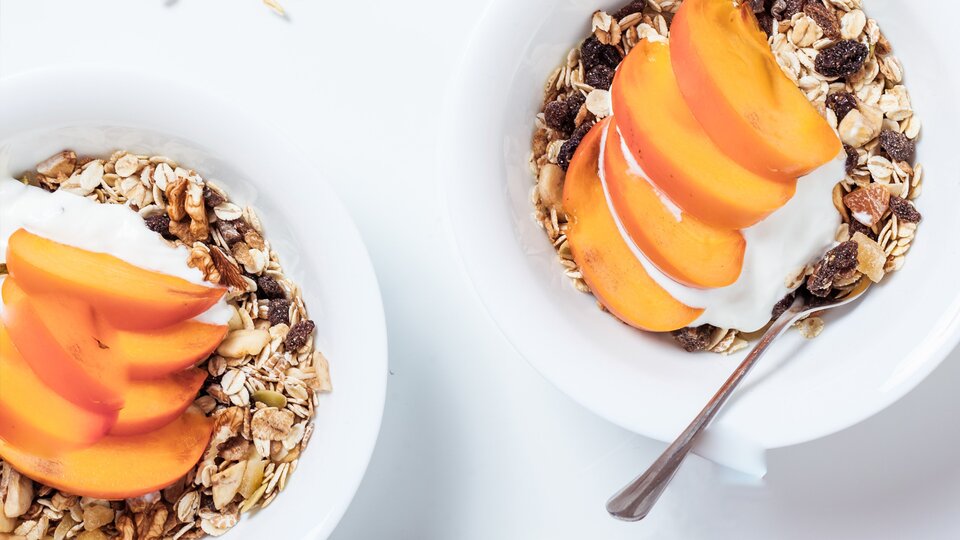Breakfast has been getting a bad reputation lately. There’re the ongoing debates of what, when, and how much to eat each morning. It’s important to stay in tune with our appetites in order to achieve our health goals. Science, like always, can be reliable with sharing how to improve the way we approach health. Here’s what science has to say about creating a Breakfast of Champions.
All or Nothing: No Breakfast vs. Big Breakfast
Intermittent fasting is no fad, going as far back as the hunter gatherer lifestyle our ancestors survived on. A morning fast can put the body into this fight-or-flight mode, increasing awareness and focus. From a health perspective, it promotes muscle atrophy (the ridding of dead cells), oxidative stress, and appetite awareness (1). On the downside, skipping breakfast can contribute to mood changes, increased depression, and a lower quality of life.
As for a big breakfast, a critically-received study (2) advocated for a Big Breakfast Diet to combat weight loss and type 2 diabetes. The Big Breakfast Diet is simple: make breakfast the largest meal of the day. It will promote weight loss by reducing appetite in the evening. This causes a realignment in the internal circadian clock and glucose maintenance. The study further proved that people who skip breakfast can disrupt their circadian clock, leading to a lower quality of sleep and weight gain.
What To Eat
The effects of carbohydrates at the bookends of the day are profound. They are an efficient source of energy, effective in promoting morning alertness and higher-quality sleep at night. When breaking a fast (be it 10 or 24 hours), carbohydrates are the easiest foods to digest and warm up the digestive system.
High-fiber carbohydrates are the most satiating. They have a low glycemic index, resulting in more fullness through the morning. Whole grains (oats, wheat bread) are optimal choices. Carbs lower in fiber, such as white bread and some cereals, are digested faster and amplify cortisol, the hunger hormone. Fruit, a source of natural sugar, is easy to digest yet provides a dose of fiber. It’s the best of both worlds. A breakfast rich in carbs and fiber can promote weight loss. As for weight gain, it’s easier to eat more fast-digesting carbs, but fiber is still essential.
Fats, no matter the fiber content, are not as reliable. If eaten in the morning, they will actually ramp up the metabolism and the process of ketosis. One study (3) looked into the effects of high-carb and high-fat breakfasts. It was noted that the high-carb breakfast eaters were more alert, with even more benefits in people who ate a high-fiber, high-carb breakfast.
That is not to say fats should be avoided in breakfast. Eggs and nuts can enhance a breakfast with quality protein.
Protein plays a major role in breakfast as well. Protein intake in the morning can capitalize on overnight muscle-protein synthesis. This was discussed in a previous article about muscle growth through sleep.
Protein is satiating and suppresses the appetite. An intake of protein in the morning promotes a better glucose and insulin response after each subsequent meal (2). For weight loss, this sounds great. The downside is that protein alone will not be an optimal source of energy; it has to be paired with other foods. Milk protein has become a breakfast staple in many cultures, coming in a variety of forms and compatible with many other foods. People with dairy intolerances can substitute it with non-dairy, lean proteins. High-fat proteins such as cheese and red meat will be harder to digest first thing in the morning.
All of this research shows that the Breakfast of Champions contains each of these three macronutrients. What does this look like on a plate?
Examples
These foods can help start your day on the right foot. What is more important though is that the quality of food is high. How much you eat in the morning is your choice. Here’s what can be paired together to your liking:
- Carbohydrates: oats, wheat bread, whole grain cereals, fruit
- Fats: nuts, seeds
- Protein: eggs, greek yogurt, milk, protein powder
Works Cited
